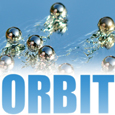Primary Science investigation
About. Describes the process of doing a science investigation including achievement levels in science investigations and different types of science practical work.
Discuss what is involved in 'doing a science investigation'. What types of science practical work are there? How might we set achievement levels for different science investigation skills? (RF)
Pedagogical content. This resource describes the process of doing an investigation for inquiry(ta)-based learning. Teachers could share practice(i) and lesson planning(ta) ideas using the list of pupil skills (e.g. observing). It also lists learning goals for investigation skills (e.g. observing, predicting, problem solving) and ideas for exploring different types of practical work(ta) in science. It could be used for discussion(ta) or brainstorming on how to apply these skills to different content areas. The resource emphasises engaging pupils in the scientific method(ta) - using higher order(ta) thinking skills, group work(ta) and dialogue(ta) to facilitate knowledge building(ta)/reasoning(ta). (edit)
| Resource details | |
| Title | Primary Science Investigation |
| Topic | [[Topics/Science|Science]] |
| Teaching approach | [[Teaching Approaches/Dialogue|Dialogue]], [[Teaching Approaches/Practical work|Practical work]], [[Teaching Approaches/Knowledge building|Knowledge building]], [[Teaching Approaches/Higher order|Higher order]], [[Teaching Approaches/Group work|Group work]], [[Teaching Approaches/Inquiry|Inquiry]], [[Teaching Approaches/Reasoning|Reasoning]], [[Teaching Approaches/Discussion|Discussion]], [[Teaching Approaches/Planning|Planning]], [[Teaching Approaches/Scientific method|Scientific method]] Teachers could share lesson ideas using the table and ideas regarding the types of skills pupils must engage (e.g. observing). The resource also includes a set of learning goals centred on the investigation skills (observing]]Property "Teaching approach" (as page type) with input value "Etc.) and a sheet with some different ideas for exploring types of practical work in science. </br>Both these sheets could form the basis of a discussion or brainstorming session to apply the types and skills given to different content areas. </br>The resources have an emphasis on encouraging pupils to think scientifically – using higher order thinking skills – and the use of group talk and dialogue to facilitate knowledge building.</br></br>Teachers work through the process of 'doing an investigation' to see what is involved in enquiry-based learning. A worksheet prompts them to 'think scientifically' and to consider the skills that children would be using in such an activity (for example" contains invalid characters or is incomplete and therefore can cause unexpected results during a query or annotation process.[[Category:etc.) and a sheet with some different ideas for exploring types of practical work in science. Both these sheets could form the basis of a discussion or brainstorming session to apply the types and skills given to different content areas. The resources have an emphasis on encouraging pupils to think scientifically – using higher order thinking skills – and the use of group talk and dialogue to facilitate knowledge building. Teachers work through the process of 'doing an investigation' to see what is involved in enquiry-based learning. A worksheet prompts them to 'think scientifically' and to consider the skills that children would be using in such an activity (for example]]Property "Teaching approach" (as page type) with input value "Predicting and measuring). Teachers can then come together to share their investigation ideas and brainstorm the types of skills pupils will practice in different content areas.</br>Ideas here include encouraging children's dialogue to facilitate knowledge building and awareness that they are a range of types of practical science work. Teachers may also discuss the assessment of practical work by looking at level criteria for various skills. (RF)" contains invalid characters or is incomplete and therefore can cause unexpected results during a query or annotation process.[[Category:predicting and measuring). Teachers can then come together to share their investigation ideas and brainstorm the types of skills pupils will practice in different content areas. Ideas here include encouraging children's dialogue to facilitate knowledge building and awareness that they are a range of types of practical science work. Teachers may also discuss the assessment of practical work by looking at level criteria for various skills. (RF)]] |
| Learning Objectives | By the end of the session you should be able to:
You should be able to:
(RF) |
| Subject | [[Resources/Teacher Education|Teacher Education]], [[Resources/Science|Science]] |
| Age of students / grade | [[Resources/Primary|Primary]]
|
| Related ORBIT Wiki Resources | |
| Files and resources to view and download |
|




